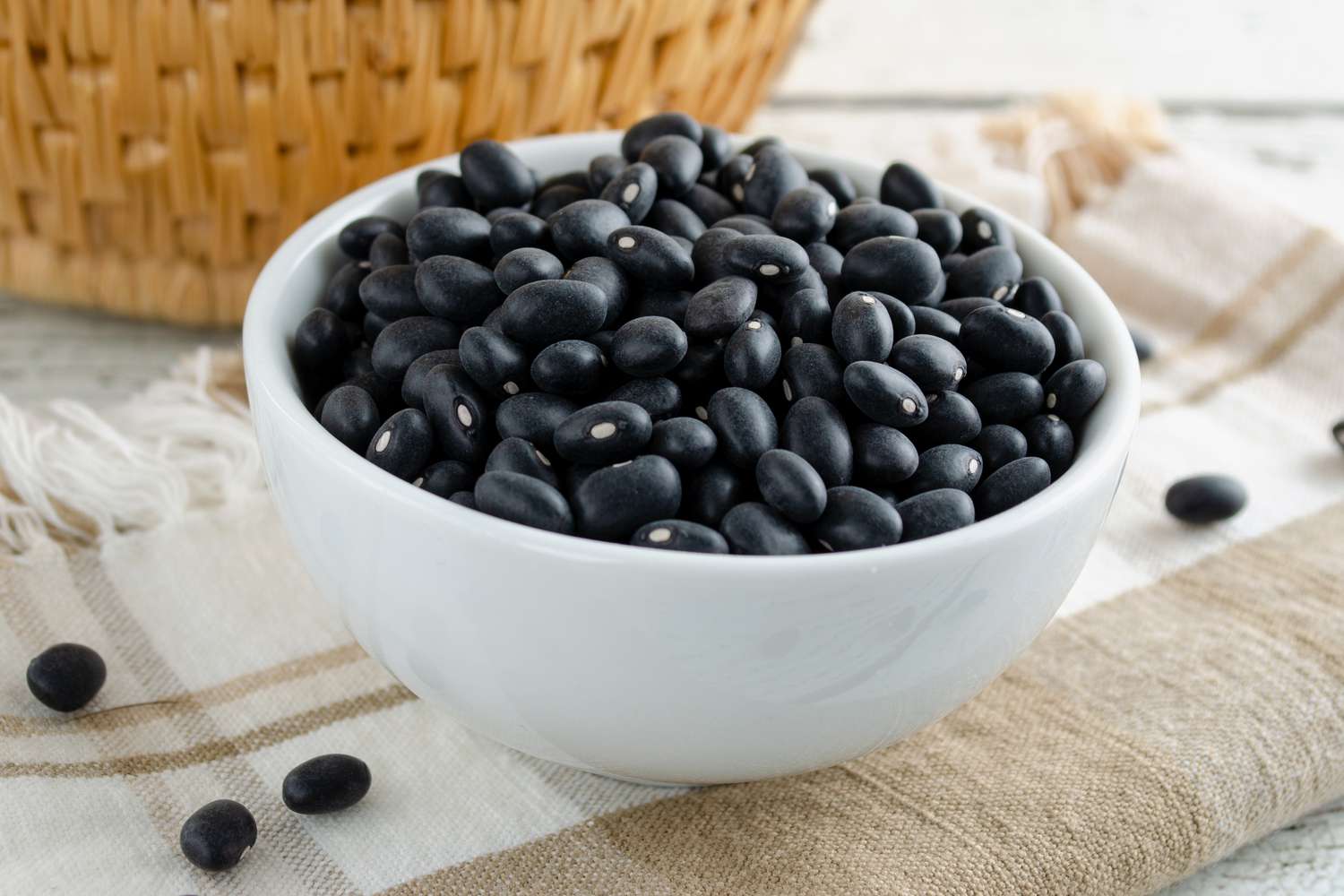
Black beans are more than just a tasty addition to your burrito bowl. These small, shiny legumes pack a punch when it comes to nutrition and versatility. Did you know that black beans are an excellent source of protein, fiber, and essential vitamins? They can help improve digestion, support heart health, and even aid in weight management. Whether you're a seasoned chef or a kitchen newbie, incorporating black beans into your meals can be both easy and rewarding. From soups and salads to tacos and dips, the possibilities are endless. Ready to learn more? Here are 25 fascinating facts about black beans that might just surprise you!
Key Takeaways:
- Black beans are a nutritional powerhouse, packed with protein, fiber, and antioxidants. They support heart health, regulate blood sugar, aid weight loss, and improve gut health. Plus, they're versatile in the kitchen and have cultural significance in various cuisines.
- Choosing black beans is not only good for your health but also for the planet. They have a lower environmental footprint, require less water to grow, help improve soil health, and support biodiversity. So, go ahead and enjoy your black bean dishes guilt-free!
Nutritional Powerhouse
Black beans are more than just a tasty addition to your meal. They pack a nutritional punch that benefits your body in many ways.
- High in Protein: Black beans contain about 15 grams of protein per cup, making them an excellent meat alternative.
- Rich in Fiber: With around 15 grams of fiber per cup, they help maintain digestive health and keep you feeling full.
- Low in Fat: They are naturally low in fat, with less than 1 gram per serving, making them heart-healthy.
- Packed with Antioxidants: Black beans are rich in antioxidants, which help fight free radicals in the body.
- Source of Iron: One cup provides about 20% of your daily iron needs, essential for transporting oxygen in the blood.
Health Benefits
Including black beans in your diet can lead to numerous health benefits. Here are some reasons to add them to your meals.
- Supports Heart Health: The fiber, potassium, and magnesium in black beans contribute to a healthy heart.
- Regulates Blood Sugar: Their low glycemic index helps stabilize blood sugar levels, beneficial for diabetics.
- Aids Weight Loss: High fiber content promotes satiety, reducing overall calorie intake.
- Boosts Bone Health: Black beans contain calcium, phosphorus, and magnesium, all crucial for bone strength.
- Improves Gut Health: The fiber acts as a prebiotic, feeding beneficial gut bacteria.
Culinary Versatility
Black beans are incredibly versatile in the kitchen. They can be used in various dishes, adding flavor and nutrition.
- Perfect for Salads: Add them to salads for extra protein and texture.
- Great in Soups: They make a hearty addition to soups and stews.
- Ideal for Tacos: Use them as a filling for tacos, burritos, or enchiladas.
- Tasty in Dips: Blend them into a smooth dip for a healthy snack.
- Delicious in Desserts: Believe it or not, black beans can be used in brownies and other baked goods for added moisture and nutrition.
Cultural Significance
Black beans hold a special place in various cultures around the world. They are a staple in many traditional dishes.
- Latin American Cuisine: Black beans are a key ingredient in many Latin American dishes, such as feijoada in Brazil.
- Caribbean Dishes: They are often paired with rice in Caribbean cuisine, creating a complete protein.
- Southwestern U.S.: In the Southwestern United States, black beans are a common ingredient in Tex-Mex cuisine.
- African Cooking: Some African dishes incorporate black beans for their rich flavor and nutritional value.
- Asian Fusion: Black beans are increasingly being used in Asian fusion recipes, blending flavors from different cultures.
Environmental Impact
Choosing black beans can also be good for the planet. They have a lower environmental footprint compared to animal-based proteins.
- Low Water Usage: Black beans require less water to grow than many other protein sources.
- Nitrogen Fixation: They help improve soil health by fixing nitrogen, reducing the need for chemical fertilizers.
- Lower Carbon Emissions: Growing black beans produces fewer carbon emissions compared to raising livestock.
- Sustainable Farming: Many black beans are grown using sustainable farming practices, promoting environmental health.
- Supports Biodiversity: Cultivating black beans can support biodiversity by encouraging crop rotation and reducing monoculture farming.
Final Thoughts on Black Beans
Black beans pack a punch when it comes to nutrition and versatility. They’re loaded with protein, fiber, and antioxidants, making them a fantastic addition to any diet. Whether you’re whipping up a hearty chili, a fresh salad, or a savory soup, black beans fit right in. They’re also a great meat substitute for those looking to cut down on animal products. Plus, they’re budget-friendly and easy to store. From their health benefits to their culinary flexibility, black beans truly shine. So next time you’re at the grocery store, grab a can or bag of these little powerhouses. Your taste buds and your body will thank you.
Frequently Asked Questions
Was this page helpful?
Our commitment to delivering trustworthy and engaging content is at the heart of what we do. Each fact on our site is contributed by real users like you, bringing a wealth of diverse insights and information. To ensure the highest standards of accuracy and reliability, our dedicated editors meticulously review each submission. This process guarantees that the facts we share are not only fascinating but also credible. Trust in our commitment to quality and authenticity as you explore and learn with us.


